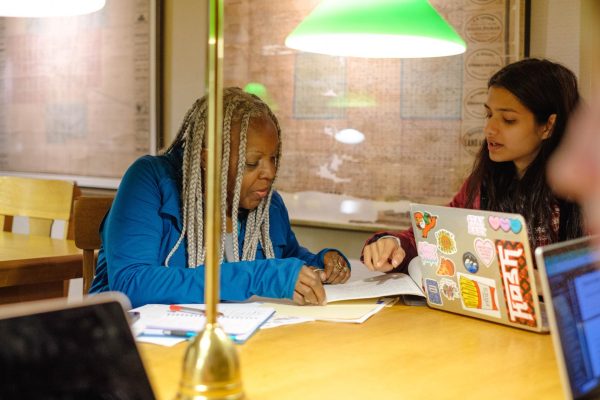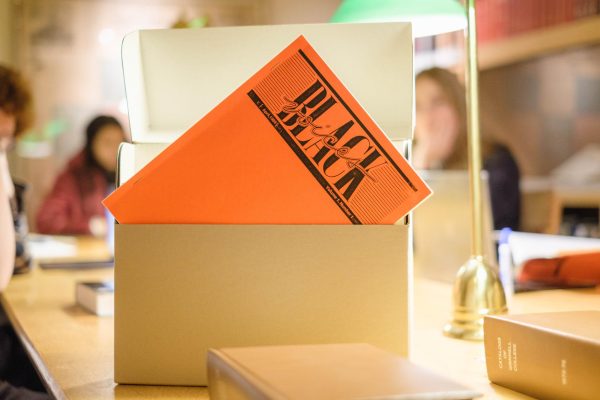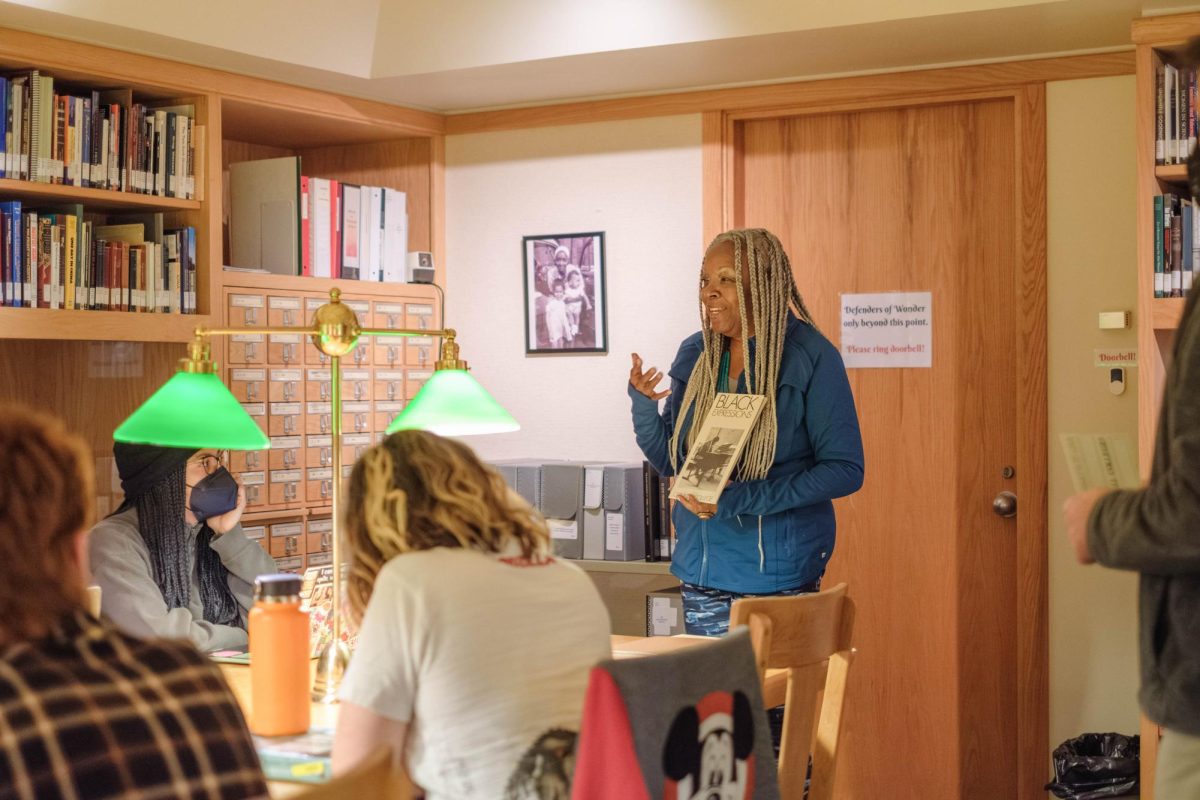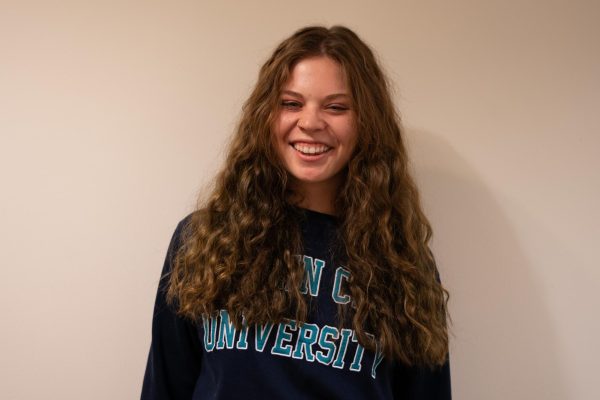Dr. Irma McClaurin `73 tells the story of a paper she wrote for her second year at Grinnell on which the professor gave her a C plus and wrote “Dear Irma, you have many good ideas, but you’re not graduate school material.” Since then, McClaurin has gone on to study in India as a Fulbright Scholar, work as a visiting scholar in Taiwan and found her own business in addition to a myriad of other achievements and published work. This paper, note written in the margin and all, now sits among the many works that populate the Irma McClaurin Black Feminist Archive (IMBFA).
“That sort of motivated me that nobody gets to decide what my destiny is going to be,” she said.
McClaurin has returned to Grinnell as a Humanities in Action scholar in residence until March 2 to create an archive about the Black Experience in Grinnell. She has employed the help of eight student interns for this project.
McClaurin has housed her own archive, the IMBFA, at the University of Amherst’s W.E.B. Du Bois Library of Special Collections and University Archives since its founding in 2016. She said that she was inspired to start archiving by the life and death of American author and anthropologist, Zora Neale Hurston.

“When I went to look for Zora Neale Hurston, I was beginning to realize that Black women weren’t that well represented in archives unless they were famous,” she said, “So you have these women who are doing this incredible work, but oftentimes, we don’t see that until decades later.”
McClaurin says that the mission of her archive is to make Black women visible and heard, especially those who are not well known, by documenting and preserving their materials.
“I’m encouraging people in this digital world we live in to think, ‘if you have family photos, particularly of Black women, what are you going to do with them?’” she said.
Some of her many accomplishments include becoming the first woman president of Shaw University, publishing an ethnographic study titled “Women of Belize: Gender and Change in Central America” and working as an executive coach and consultant at her own company, Irma McClaurin Solutions.
“For me, the archiving became a way of acknowledging the importance of the contributions I made. I have award-winning books, I’ve done writing in multiple genres and I felt like I’ve made a contribution,” said McClaurin, “I wanted to be able to preserve that, but not just for me, for other women.”
While visiting Grinnell, McClaurin spoke to this idea at her scholar’s convocation on Feb. 8, titled “A Life Worth Archiving — Excerpts from a Memoir.”

In her work on Grinnell’s own Black Experience archive, McClaurin continues to emphasize her focus on the works that are not always seen.
“We know about Miss Edith [Renfrow Smith], we’ve done very well,” she said, “but there are a whole lot of people who were here that maybe have not lived as long and we need to be able to pull that together.”
McClaurin uses Grinnell’s past place on the Underground Railroad as an example of Black history at Grinnell that is not often discussed.
“Had I known that JB Grinnell was an abolitionist, not just a follower of the social gospel, I think that would have made a difference to how I feel about this institution,” said McClaurin, reflecting on how she could have used this archive as a Black student at Grinnell, “I would have had a kind of respect for the College to say, well, let’s live up to those abolitionist principles.”
In addition to the scholar’s convocation and archive work, over the course of her visiting scholarship thus far, McClaurin gave an anthropology lunch talk and hosted an interactive workshop. She additionally visited and talked to a variety of classes.
Looking forward, McClaurin will attend a 1 to 4 p.m. screening of “In Her Own Words” on Sunday, Feb. 25 and answer questions afterwards. This documentary about the life of Zora Neale Hurston largely features research from and interviews of McClaurin.





















































